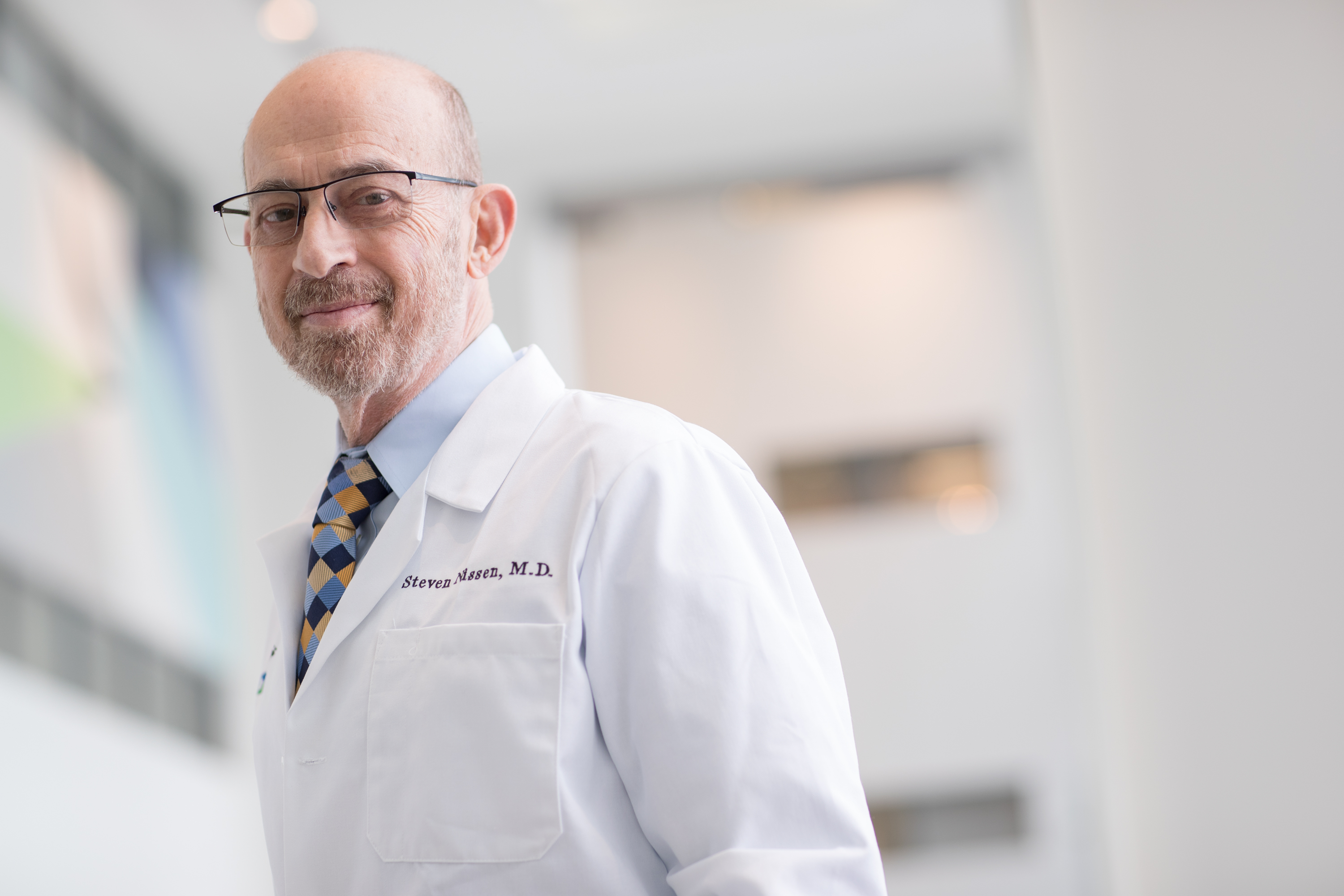Is Testosterone Replacement Therapy Safe for Your Heart?

A Cleveland Clinic-led trial looked at the safety of testosterone replacement therapy for patients with documented low levels of testosterone. Dr. Steve Nissen discusses the results that testosterone-replacement therapy did not result in a higher rate of major adverse cardiac events for some patients. Although safe in the patient group studied, researchers still urge caution when considering testosterone therapy.
Learn more about clinical trials in the Heart, Vascular and Thoracic Institute at Cleveland Clinic
Subscribe: Apple Podcasts | Buzzsprout | Spotify
Is Testosterone Replacement Therapy Safe for Your Heart?
Podcast Transcript
Announcer:
Welcome to Love Your Heart, brought to you by Cleveland Clinic's Sydell and Arnold Miller Family Heart, Vascular and Thoracic Institute. These podcasts will help you learn more about your heart, thoracic and vascular systems, ways to stay healthy, and information about diseases and treatment options. Enjoy.
Steven Nissen, MD:
I'm Dr. Steve Nissen, I'm the Chief Academic Officer of the Heart, Vascular and Thoracic Institute at the Cleveland Clinic. The use of testosterone in men as they age has been a very controversial topic. One of the major concerns has been whether it is safe for the heart to take testosterone replacement therapy. And this concern has been magnified by the presence of many so-called "low T centers", clinics where the primary purpose of the clinic is to administer testosterone to men. As a result of the controversy about the safety of testosterone, the FDA required the manufacturers of testosterone to conduct a large clinical trial to assess the safety in men with documented low testosterone levels. That mandate came in 2015, it took a couple of years to design the trial, and many more years to actually conduct it, particularly in the middle of the pandemic, but the results are now in.
What we did in collaboration with the makers of testosterone, is study about 5,000 men between the ages of 45 and 80, who had two levels of testosterone drawn, blood draws, and both had to be less than 300 nanograms per deciliter, which is the standard way testosterone is measured. But they also had to have symptoms of deficiency in testosterone, such as excessive fatigue, reduced sexual performance, reduced beard growth, and other hair growth, these are all signs of low testosterone. If they met the entry criteria, they were then randomly assigned to take testosterone in the form of a gel placed on the skin or a gel containing placebo, containing no active ingredients. The amount of gel was then adjusted over time to get the levels of testosterone into the normal range. Patients were then followed for an average of 22 months of treatment and 33 months of follow-up.
After those of us conducting the trial were unblinded, which means we were made aware of which patients got testosterone and which patients got placebo, we were able to analyze the data. And what the data showed was that a heart related event, something bad, happened in 7 percent of the patients in the testosterone group and 7.3 percent of patients in the placebo group. What that means is that there was no difference in the rates of heart related events in patients taking testosterone compared with patients who were taking placebo, but there are some cautions needed here. First of all, these were patients with very well documented low levels of testosterone on two occasions, drawn properly, which is in the morning, and they had to have symptoms. Their treatment was monitored very carefully, and their doses adjusted to get them into the normal range.
We have concerns that our study is not misused. This does not mean that people should take testosterone for body building or that athletes should take testosterone, or that men without a documented low level should take testosterone. And unfortunately, there is data to suggest that many of these so-called low T centers are giving out testosterone to people who would not qualify for testosterone in our clinical trial. So, we have shown that testosterone is safe, we urge caution in how it's used. We want people to understand that we only treated patients for 22 months so that we don't have evidence of safety, say with five years of use. That's a gap that we won't easily be able to close, but it is important for people to understand that there are limitations in the study, and that use of testosterone should be guided by a professional at a medical center that has experience with using testosterone and that can monitor patients closely for side effects, and also make sure that doses are adjusted in a proper way to get people into a normal range.
Now, there were some adverse effects observed that were not part of the primary reason for conducting the trial, but there was an excess of events of atrial fibrillation and there was an excess of events involving clots in the leg or clots in the lung. These were not common, but they were observed more commonly in the testosterone group than the placebo group. Therefore, we would recommend that men with a history of atrial fibrillation should be very cautious about taking testosterone, and individuals with a history of blood clots in the legs or elsewhere, should also be careful about taking testosterone. Overall, the study was very good in that it showed us that testosterone can be used safely, but it has to be used carefully. Thank you for your attention.
Announcer:
Thank you for listening. We hope you enjoyed the podcast. We welcome your comments and feedback. Please contact us at heart@ccf.org. Like what you heard? Subscribe wherever you get your podcasts or listen at clevelandclinic.org/loveyourheartpodcast.

Love Your Heart
A Cleveland Clinic podcast to help you learn more about heart and vascular disease and conditions affecting your chest. We explore prevention, diagnostic tests, medical and surgical treatments, new innovations and more.


